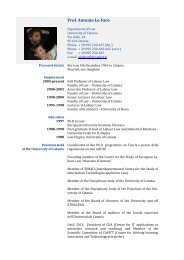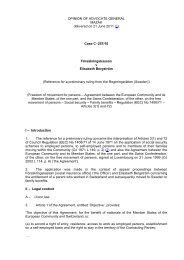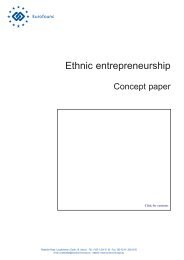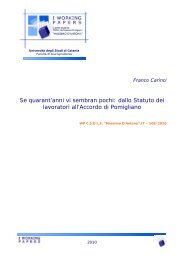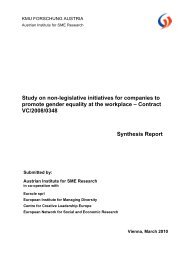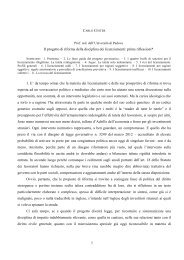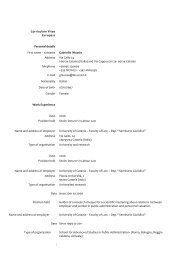Full text - European Trade Union Institute (ETUI)
Full text - European Trade Union Institute (ETUI)
Full text - European Trade Union Institute (ETUI)
Create successful ePaper yourself
Turn your PDF publications into a flip-book with our unique Google optimized e-Paper software.
Temporary agency work in the <strong>European</strong> <strong>Union</strong><br />
State of play article by article with focus<br />
on specificities of national legislations<br />
main difficulties/loopholes<br />
Scope (Article 1)<br />
Article 1 defines the scope of the Directive, which is the triangular employment<br />
relationship that characterises temporary agency work. The scope is<br />
fairly broad as it encompasses temporary work agencies operating for gain or<br />
not, and user undertakings in the private and public sectors.<br />
Regarding scope, the example of two Member States should be mentioned.<br />
In Austria, the scope of application of temporary agency work legislation has<br />
been extended in accordance with the Directive, allowing for exceptions and<br />
particular rules in case of non-profit temporary work placement, placement<br />
in public undertakings – national, regional or communal – in agriculture and<br />
forestry, public vocational training programmes and cooperation for development.<br />
Austrian legislation also provides for particular rules to protect temporary<br />
agency workers (licensing, minimum requirements in the work contract,<br />
compliance with legislation).<br />
In Germany, the scope of the national legislation has been changed on two<br />
points: (i) exceptions have been allowed regarding the intra-corporate transfer<br />
of temporary workers and (ii) the idea of temporary assignments has been<br />
included in the legal <strong>text</strong> without any definition. Therefore it is a controversial<br />
question how to transpose this important requirement of the Directive and<br />
probably the courts will have to deal with this matter.<br />
The Directive uses various concepts whose definitions need to be clarified by<br />
national legislation. Here are a few examples of definitions provided by Member<br />
States.<br />
The concept of an ‘assignment’<br />
The concept of assignment exists in most Member States. It refers to the period<br />
during which agency workers are in fact working in the user undertaking.<br />
It seems that the main trend consists of limiting the duration of assignments,<br />
such as in France, Luxembourg, Slovenia, Poland and Greece.<br />
In Belgian law, the concept of assignment does not exist. The duration of an<br />
assignment is simply the duration of the contract, or the sum of successive<br />
Report 125 27




